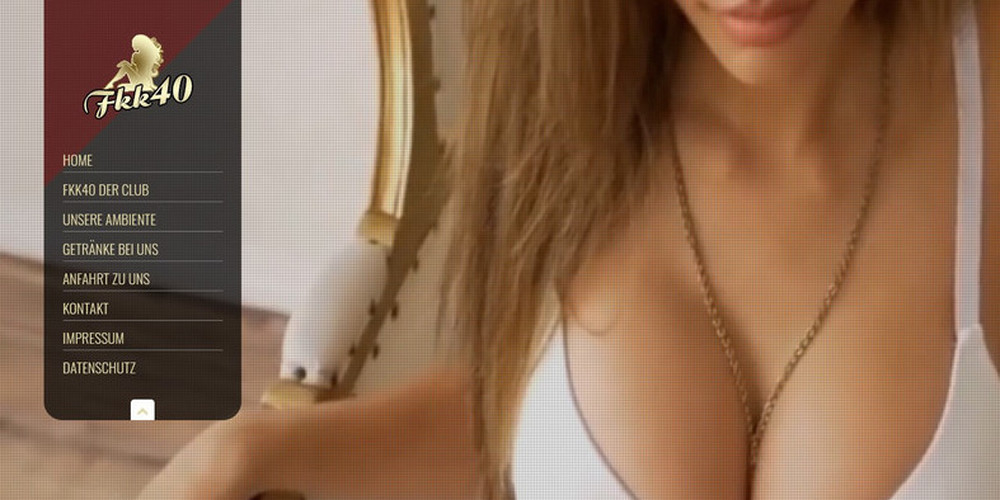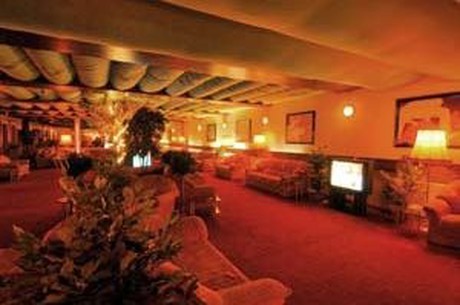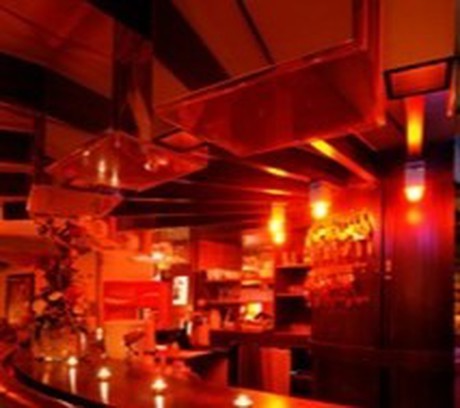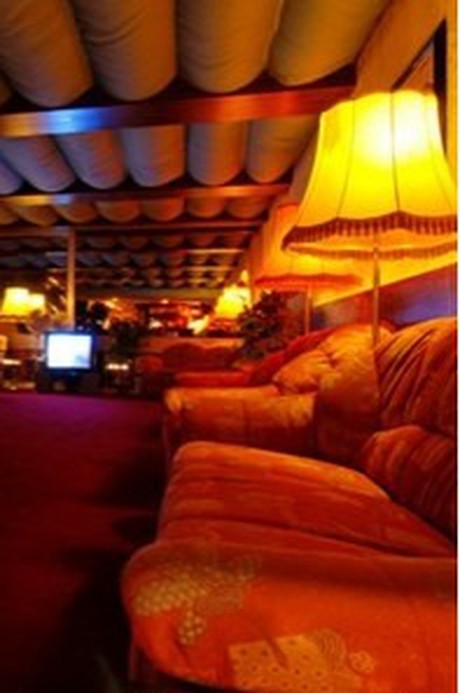
- Ja
- Kostenlose Soft-Drinks
- Blickgeschützter Parkplatz
- Kostenlose Parkplätze
- Klimatisiert
- Professionelle Massage
- Finnische Sauna
- Solarium
- Wertfächer
- Nein
- Kostenloses Essen
- Kostenloses Bier
- Bier vom Fass
- Cocktails
- Warmes Abendessen
- Behindertengerecht
- Sport-Live-Übertragung
- Kostenloses WLAN
- Außenanlage (Garten)
- EC-Automat / Zahlung
- Porno-Kino
- SM Raum
- Spielautomaten vorhanden
- Übernachten möglich
- Whirlpool Indoor
- Whirlpool Outdoor
- Swimmingpool Indoor
- Swimmingpool Outdoor
- Dampfbad
- Live Shows
- Live DJ
- Abholung möglich
Kleine Außenterrasse vorhanden.
Mit dem Begriff RTC (Roter-Teppich-Club) hat sich im einschlägigen Jargon ein Oberbegriff für bestimmte Clubs mehrerer Betreibergruppen eingebürgert, die sich in ihrer Konzeption sehr ähnlich sind. Namentlich gemeint sind derzeit die Clubs --> FKK Villa Romantica, --> FKK Villa Venus, --> FKK Villa Arabella, --> FKK Villa Verena, --> FKK Freude 39, --> FKK Grimbergsauna, --> FKK Luderland, FKK Ludertreff und --> Dietzenbach, die

sich durch ein schlicht gehaltenes Wellnessangebot ohne Catering, eine äußerst günstige Preisstruktur mit standardisierten Tarifen und Extras - wenn angeboten - ohne Aufpreis, absolute FKK (außer Club Dietzenbach) und einen minimalistischen Internetauftritt von anderen Saunaclubs abheben. Die Bezeichnung "Roter-Teppich-Club" ist eine Anspielung auf die klischeebehaftete Vergangenheit einiger traditionsreicher Ruhrgebietsclubs, die sich mit ihrem puffigen

Plüsch, dem vorherrschenden Gelsenkirchener Barock und teils kitschig-verlottertem Dekor bis hin zum besagten roten Teppich fest in die Erinnerung des Publikums eingegraben haben. Abgesehen von der Grimbergsauna bieten die meisten RTC-Clubs, wenn überhaupt, nur ein sehr bescheidenes Freigelände auf. Eine geographische Sonderposition nimmt der FKK Dietzenbach - auch FKK 40 oder Aldi genannt,- ein, der fernab der anderen Clubs in Dietzenbach bei Frankfurt beheimatet ist.

|
|
|
|
| ° | ° | ° |
Happy Hour 14-16 & 19-23 Uhr 19,99 EUR.
20/30/40/60min 30/40/50/80 EUR.
Line-up Range: Min |5-25| Max
Dietzenbach
Onomastik: Dicenbach, Dytzenbach, Dyetzenbach
erste urkundliche Erwähnung: 1215 n. Chr.
Einwohnerzahl: 34.000
Fläche: 21,68 km²
Bundesland: Hessen
Regierungsbezirk: Darmstadt
Landkreis: Offenbach
KFZ-Kennzeichen: OF
Fluss: Bieber
Der Club Dietzenbach befindet sich in Dietzenbach südöstlich des Bahnhofs.
Frankfurt am Main:
Nach Berlin sind es 420 km, nach Hamburg 390 km, nach Köln 150 km und nach München 200 km (jeweils Luftlinie): Frankfurt am Main ist eine uralte Handelsstadt im Herzen Deutschlands, mit rund 750.000 Einwohnern kleiner zwar als die vier deutschen Millionen-Metropolen, jedoch in vielerlei Hinsicht eine Stadt der Superlative, die alle anderen deutschen Städte in ihrer Bedeutung bei weitem überragt.
Das gilt allein schon im wörtlichen Sinne: Die beeindruckende Skyline der Frankfurter Wolkenkratzer ist in Deutschland einzigartig. Die zehn höchsten Gebäude Deutschlands befinden sich ausnahmslos in Frankfurt, darunter der Commerzbank Tower, der Messeturm, der Main Tower und das EZB-Gebäude.
Doch Frankfurt ist darüber hinaus eines der wichtigsten Geschäftszentren der ganzen Welt, viele deutsche oder ehemalige deutsche Großkonzerne haben oder hatten dort ihren Sitz, darunter der einst weltweit größte Chemiekonzern Hoechst, die Metallgesellschaft, VDM, Cassella, Hartmann & Braun, Degussa, VDO oder Deutsche Bahn sowie natürlich zahlreiche Banken und Finanzinstitute, allen voran Deutsche Bank, Commerzbank und Deutsche Börse AG. Frankfurt ist Sitz der größten deutschen Finanzbörse, der Deutschen Bundesbank und der Europäischen Zentralbank. Analog zu der Bedeutung der alten Handelsrouten ist das Frankfurter Autobahnkreuz der meistfrequentierte Verkehrsknotenpunkt Europas, der Frankfurter Flughafen ist eines der weltweit bedeutendsten Luftfahrtdrehkreuze und selbstverständlich findet man hier auch einen der wichtigsten Messeplätze Deutschlands.
Die quirlige Handelsmetropole gehört Umfragen zufolge auch im internationalen Vergleich zu den Großstädten mit höchster Lebensqualität, auch wenn negative Aspekte wie relativ hohe Kriminalitätsrate und Mietpreise den Gesamteindruck ein wenig trüben. Frankfurt ist in jedem Fall nicht nur Pflichtprogramm für Geschäftsreisende, sondern lockt auch im touristischen Sinne durch viele Attraktionen. Das beginnt bei der historischen Altstadtkulisse nahe des Mainufers mit Kaiserdom, Römerberg, Goethe-Haus und Paulskirche, umso mehr, als die Stadt nun in einem 200-Millionen-Euro-Projekt auf einer Fläche von sieben Hektar ein Ensemble von insgesamt 15 Häusern rund um den historischen Krönungsweg hat rekonstruieren und weitere 20 in historischer Anmutung hat errichten lassen. Diesen Weg nahmen ab 1562 - nach dem Wechsel des Wahl- und Krönungsortes von Aachen nach Frankfurt - bis zum Ende des Heiligen Römischen Reiches die römisch-deutschen Kaiser auf dem Weg zum Kaiserdom. Der Frankfurter Dom - erbaut zwischen 1250 und 1514 - ist somit eines der bedeutendsten Bauwerke der deutschen Reichsgeschichte. In der nicht weit entfernten Paulskirche hingegen tagte von Mai 1848 bis Mai 1849 die Deutsche Nationalversammlung, die erstmalig auf deutschem Boden einen demokratisch-parlamentarischen deutschen Nationalstaat zu installieren versuchte.
Hundert Jahre später wäre die 794 n. Chr. erstmals urkundlich erwähnte einst Freie Reichsstadt beinahe Hauptstadt der jungen Bundesrepublik Deutschland geworden. Auch wenn daraus nichts geworden ist – die Stadt hat in den letzten Jahrzehnten ein rasantes Wachstum hingelegt und ihren Bürgern großen Wohlstand beschert. In der Innenstadt spiegelt sich die überdurchschnittliche Kaufkraft des Publikums in den Konsumtempeln in einer von Deutschlands größten Einkaufsmeilen wider: der Frankfurter Zeil mit der angrenzenden Goethestraße. Wer es sich dieweil leisten kann und der Großstadt-Hektik entfliehen möchte, sucht sich seinen Wohnsitz in den idyllisch gelegenen Kurorten des angrenzenden Hochtaunus: Königstein, Bad Homburg oder Kronberg sind Wohnsitz zahlreicher Frankfurter Gutverdiener und gehören zu den reichsten Kommunen Deutschlands.
Wen es doch lieber in der Stadt hält, der bekommt allein in Sachen Kultur und Freizeitgestaltung einiges geboten: so etwa die Oper Frankfurt, das Theater am Turm oder das alteingesessene Gallus Theater, das Museumsufer auf der Sachsenhäuser Mainseite mit Häusern wie dem Städel, dem Liebighaus oder dem Museum der Weltkulturen sowie abseits davon ein pulsierendes Nachtleben. Frankfurt ist nicht nur Heimat des traditionsreichen Fußballvereins Eintracht Frankfurt, sondern auch Sitz der wichtigsten deutschen Sportverbände wie Deutscher Fußball-Bund (DFB), Deutscher Olympischer Sportbund (DOSB), Deutscher Turner-Bund (DTB) oder Deutscher Motor Sport Bund (DMSB).
Zu den bekannten Söhnen und Töchtern Frankfurts gehören zahlreiche Angehörige der Bankiers-Dynastien Rothschild und Oppenheim(er), Caspar & Maria Sibylla Merian sowie Theodor W. Adorno, Bettina von Arnim, Heinrich Hoffmann, Friedrich Wöhler, Otto Emil Hahn, Arthur Schopenhauer und Johann Wolfgang von Goethe, Heinrich Hoffmann, Erich Fromm, Anne Frank, Wolfdietrich Schnurre, Albert Mangelsdorff, Dieter Wedel, Wolfgang Spier, Marika Kilius, Jean Frankfurter, Michael Groß, Thor Kunkel, Hans Zimmer, Peter Kloeppel, Hannes Jaenicke, Birgit Prinz, Jessica Wahls, Namika, Sonya Kraus, Moses Pelham und Sabrina Setlur.
Dietzenbach:
Dietzenbach gehörte von alters her zum mittelalterlichen Siedlungsverband Rödermark und anfangs zu den Herren und Grafen von Hanau. Im Laufe der Jahrhunderte fiel es in den Besitz anderer Grafschaften, zuletzt kam es 1771 nach Hessen-Darmstadt. Seit 1832 gehört Dietzenbach - mit Ausnahme der Jahre 1848-52, in denen es zum Bezirk Darmstadt gehörte - zum Kreis Offenbach. Dietzenbach hat 1970 die Stadtrechte erhalten.
Die Stadt Dietzenbach ist ein kleiner Ort in Hessen mit knapp 34.000 Einwohnern. Besonders viel Wert legt dieser kleine Ort auf die Kulturpflege. Neben vielen Musikvereinen gibt es ein Museum für Geschichte sowie ein Feuerwehrmuseum, die Stadtbücherei mit vielfältigem Angebot sowie zahlreiche Ausstellungen in den ansässigen Galerien.
Außerdem ist Dietzenbach in Hessen ein bekannter Wirtschaftsstandort. Inmitten einer der wichtigsten wirtschaftlichen Regionen Deutschlands ist der Ort fest ans Rhein-Main Gebiet angebunden, insbesondere an Frankfurt. Auch seine Verkehrs-Infrastruktur lässt nicht zu wünschen übrig, denn binnen weniger Minuten erreicht man wichtige Autobahnen wie etwa die A3 oder die A5. Auf dem S-Bahn-Streckennetz im Sektor kann man auch bequem durch das gesamte Rhein-Main Gebiet fahren. Mit drei S-Bahnen bekommt man Anschluss an die S-Bahn-Linien der großen Wirtschaftsmetropolen.
Dietzenbachs Einwohner haben allen Anlass dazu, sich in ihrer Heimatstadt wohlzufühlen. Das liegt unter anderem an der Vielfalt des gastronomischen Angebotes wie auch Veranstaltungen wie dem jährlich stattfindenden beliebten Weinfest. Auch Theater-, Operetten oder Kinobesuche sind in Dietzenbach möglich. Besonders beliebt sind die kommunalen Zimmertheater.
Der hessischen Ortschaft liegen insbesondere auch Kinder sehr am Herzen. Daher gibt es viele Kindergärten, Schulen (sowohl private als auch öffentliche) und viele Einkaufsmöglichkeiten. In Dietzenbach sind Leben, Entspannung und Arbeit harmonisch miteinander vereint.
Hotel-Restaurant Sonnenhof (1,3 Km)
Otto-Hahn-Straße 7
63128 Dietzenbach
https://www.sonnenhof-dtz.de
Artrium am Park (1,8 Km)
Waldstraße 94
63128 Dietzenbach
https://www.hotel-artrium.de